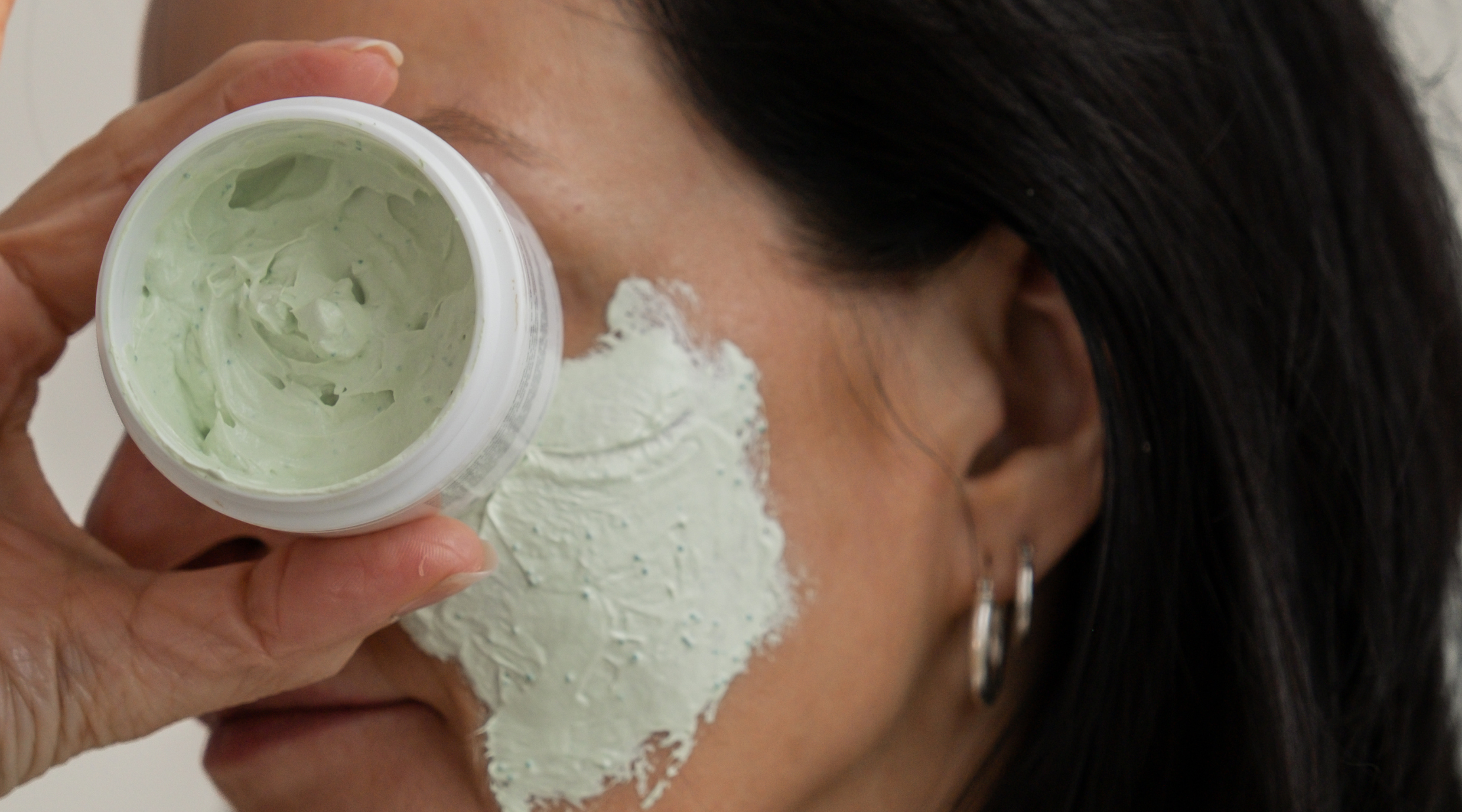
Exfoliating and Masking for Your Skin Type
There’s nothing more elite than a self-care session that includes an exfoliating treatment and a face mask on a weeknight. That being said, there are some golden tips to follow to make sure you’re treating your skin barrier with the ultimate respect. Read on below for our advice!
CHOOSING THE RIGHT EXFOLIATOR
Choosing the right exfoliator for your skin involves considering your skin type and its specific needs.
- Gentle enzymatic exfoliants—such as jojoba beads or enzymes derived from fruits like papaya or pineapple—provide a natural and mild exfoliation without the sharp edges of other exfoliating agents. Our most popular enzymatic exfoliants are the Vivier Skin Illuminating Enzymatic Peel, Aquafolia’s Enzymatic Step 1 + Step 2, as well as the France Laure Enzymatic Fruit Exfoliant - Illuminate.
- Granular exfoliants, on the other hand, work by manually exfoliating the skin. By removing dead skin cells, they provide a more immediate sensation of smoothness. However, they may be more abrasive than enzymatic masks, so caution is needed for those with sensitive or easily irritated skin. Granular exfoliants we love include the Dr. Barbara Sturm Enzyme Cleanser, ZO Skin Health Exfoliating Polish, and the Nelly De Vuyst 3 Minute Gommage.
Oily or acne-prone skin types will benefit from salicylic acid, a beta-hydroxy acid (BHA) that unclogs pores. Meanwhile, those with combination skin can use a mild exfoliator, either chemical or physical.
For sensitive or dry skin, opting for a chemical exfoliator with ingredients like lactic acid or glycolic acid (or any other preferred AHA) provides a gentle exfoliation. The SkinMedica AHA/BA Cleanser is a great ultra-gentle option!
SHOULD YOU MASK AFTER EXFOLIATING?
Absolutely. Applying a mask after exfoliating provides essential benefits to your skincare routine. Because exfoliation removes dead skin cells from the surface of your skin, other skincare products, like masks, will then penetrate more effectively.
Masking is also a great way to soothe and replenish the skin with essential nutrients, promoting a smoother and more radiant complexion, especially if the exfoliation process temporarily sensitizes the skin.
And, of course, depending on the type of mask you choose, you can address specific skincare concerns, such as dryness or dullness.
CHOOSING YOUR MASK + EXFOLIATION DUO
Again, it’s crucial to know and understand your skin type before reaching for a new product. Enzymatic treatments are generally gentler and may be preferred for sensitive skin, while granular ones can be suitable for those with normal to oily skin but may be too abrasive for sensitive or dry skin.
It’s also important to consider your concerns. If you're primarily concerned with dullness or uneven skin tone, an enzymatic mask might be a good choice. If you're looking for a more intense exfoliation or have congested pores, a granular mask could be more beneficial.
Additionally, it's recommended to perform a patch test before using any new skincare product to ensure compatibility with your skin.
Post-exfoliation, our recommendations differ:
- Sensitive skin will most enjoy the MultiVitamin Freeze Mask, France Laure’s Gentle Gel Mask, or the Dr. Hauschka: Soothing Mask.
- For those with acnetic or oily-prone skin, we recommend using the ZO Skin Health: Complexion Cleaning Mask, the PCA: Purifying Mask, or the Esthederm: Intensive Propolis+ Purifying Mask.
- Dry skins should reach for the Phytoceane Nourishing Moisturizing Mask or the Viviescence Cellskin Nutri-Correction Mask, while dehydrated skins will soak up the Vivier: Ultra Hydrating Mask or the Augustinus Bader: The Face Cream Mask. Two other suggestions we love are the Yonka Hydra No1 Mask or the Image: Hydrating Hydrogel Sheet Mask––a silky smooth sheet mask alternative.
Until next time,
The BSE Team










Leave a comment